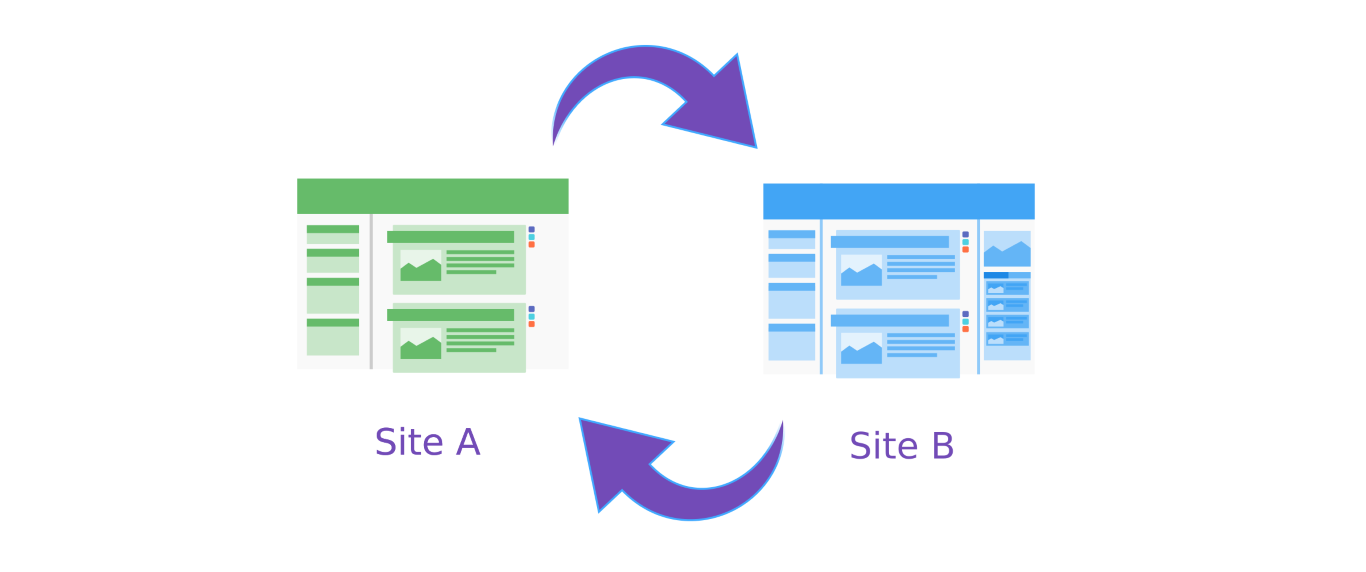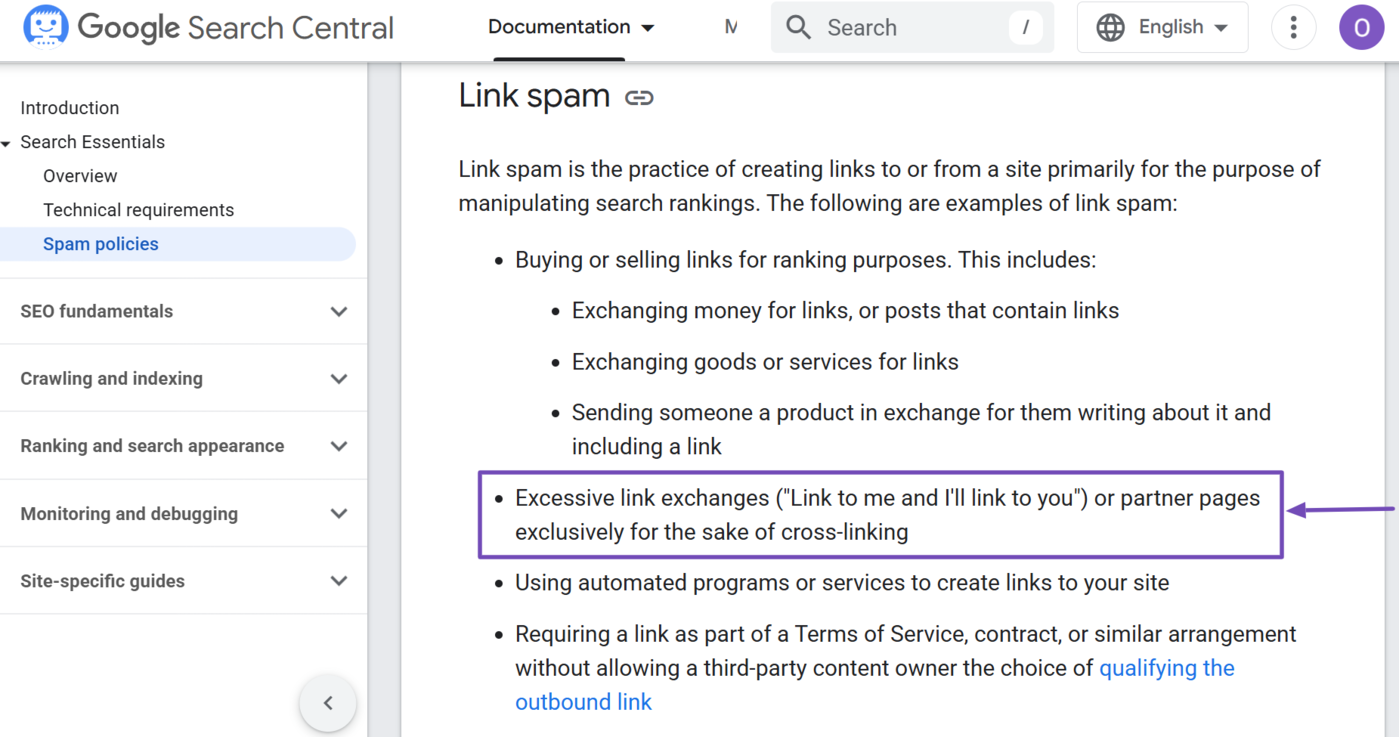What is a Reciprocal Link?
A reciprocal link is a link given to an external site in exchange for a backlink. For example, Site A links to Site B, and in return, site B links back to Site A.

Whether reciprocal links are a white hat or black hat SEO technique depends on how they are implemented and the context in which they are used. They are considered a white hat technique when practiced in moderation and with relevant, high-quality sites. However, they can become a black hat technique when used excessively or inappropriately.
Google considers black hat reciprocal linking a form of link spam. The spam policies section of Google Search Essential guidelines even specifically categorizes “excessive link exchanges” created to earn backlinks as spam.

Reciprocal links are pretty common on the web, as multiple popular sites in the same niche typically link to one another. Such links usually occur because both content is relevant and helpful to one another. The bloggers may also have agreed to link to one another, but the links are not considered manipulative since they are relevant.
Why Reciprocal Links Are Important
Reciprocal links are a great way to collaborate with other bloggers in your niche and build high-quality backlinks to your site.
These backlinks increase your visibility and credibility. They also drive referral traffic, as users from the linked site may visit your site. Additionally, they improve your authority in the eyes of search engines, especially if the linking site is high-quality and relevant to your content.
However, reciprocal links should be done cautiously to avoid appearing manipulative or spammy. Search engines, including Google, prioritize natural and relevant links, so excessive or irrelevant reciprocal links can harm your SEO efforts.
To maximize the benefits of your reciprocal linking efforts, make sure to focus on exchanging links with high-quality, relevant sites in your industry or niche. This ensures that the links in the content align with your content and audience.
Such high-quality links will complement your link building strategy, improve your site’s rankings, and contribute to a more substantial online presence and highly relevant referral traffic.
Difference Between a Reciprocal Link and Link Exchange
Reciprocal links and link exchanges both refer to sites that link to one another. Both terms are even used interchangeably, even though they have subtle differences. Specifically, the difference between reciprocal links and link exchanges lies in how the links are earned.
Reciprocal links are typically more natural than links from link exchanges. For one, reciprocal links can occur when a site links to another site because the other site linked to them. In such cases, there is no agreement between the linking sites.
Instead, one high-quality site decided to link to the other high-quality site because the other site linked to them first. Both sites may also link to one another as part of a mutual agreement. However, they only link to relevant and high-quality content.
In contrast, link exchanges are almost always part of an agreement. They may also involve multiple sites that are part of a larger network. So, we could have multiple sites engaging in link exchanges. This typically results in bloggers linking to random content without considering their quality and relevance.
Such link exchanges quickly become a link scheme, which is black hat SEO, and sites engaged in such could be penalized by Google. When that happens, the content or site would be demoted or deindexed on search results pages.
To avoid any penalty, it is essential to only link to relevant and high-quality content as part of your link exchange and reciprocal linking campaign.